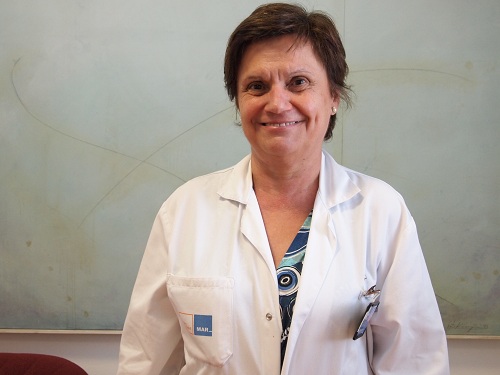
December 2nd, 2020 - Press notes
In an article published in the journal World Psychiatry, leading experts in this field recommend the approach implemented in the Barcelona centre. One of the authors of the article is Dr. Marta Torrens, Director of the Addiction Process group in the Neuropsychiatry and Addictions Institute at Hospital del Mar. Patients with a dual diagnosis are those who suffer an addiction to a substance of abuse in addition to another psychiatric disorder. The authors of the article advise authorities and organisations to adopt a multidisciplinary approach that will allow an early diagnosis of this comorbidity, and to pay particular attention to minors living with these patients.
The article published in the journal World Psychiatry and endorsed by the informal scientific network of the United Nations Office on Drugs and Crime (UNODC) and the World Health Organisation (WHO), and including the United States National Institute of Drug Abuse (NIDA), validates and corroborates the approach to the dual diagnosis implemented at Hospital del Mar for patients being treated for addiction to a substance of abuse who, in addition, suffer another psychiatric pathology.

Dr. Marta Torrens
Dual diagnosis is a major health problem that causes, according to the article, an increased number of emergencies in healthcare centres, as well as more psychiatric hospitalisations, a higher risk of relapse into drug use and premature death, including suicide. This has individual and social repercussions, as well as consequences for healthcare systems, and means that a multidisciplinary and comprehensive approach is required. Nevertheless, as the authors of the paper point out, there is a generalised lack of preparedness to deal with this situation.
In this sense, Hospital del Mar was a pioneer in the approach to dual diagnosis, with the launch, 15 years ago, of the first dual diagnosis unit in Catalonia for acute patients. This model is based on a holistic view of the patient and their environment, with special interest in gender bias (9 out of 10 women who are addicted to injected drugs also suffer from another psychiatric pathology) and the research is applied to the reality of patient care, as well as any improvements that can be made.
As pointed out by Dr Marta Torrens, the second author of the paper, Director of the Addictions Process in the Institute of Neuropsychiatry and Addictions (INAD) at Hospital del Mar, and coordinator of the Addictions Research Group at the Hospital del Mar Medical Research Institute (IMIM), the work already performed serves as a model "for both those who make the diagnosis and policy makers, so that they become aware of how important it is to detect and treat dual diagnosis early on." Dr. Torrens is the only signatory of the work from a Spanish institution and the only expert from a healthcare centre.
The authors of the article are committed to integrating the management of dual diagnosis into the universal health system, and encourage politicians to establish strategies to help resolve the biopsychosocial factors linked to dual diagnosis. Within healthcare centres, medical staff must be properly trained in how to manage this type of patient and be given the resources to do so. At the same time, they recommend the systematic screening of people with drug addictions to detect other psychiatric pathologies.
They also call for an approach that takes into account the gender of the patients, as well as one that is stigma-free, with interventions appropriate to the age of the sufferer. They advocate a particular focus on minors, with preventive actions for risk factors, including children with family members or carers who have a dual diagnosis disorder. Finally, they encourage access to services for dealing with this problem within the justice system, especially in prisons and detention centres, in order to collect data to properly monitor the situation, adapt the measures to the cultural reality of each country and region, and support research.
The authors of this work believe that this will improve the treatment of patients, and provide the necessary training for health professionals to enable them to diagnose and treat patients at an early stage. The article is the result of two years of meetings between the informal scientific network of the UNODC and the WHO.
Volkow ND, Torrens M, Poznyak V, et al. Managing dual disorders: a statement by the Informal Scientific Network, UN Commission on Narcotic Drugs. World Psychiatry. 2020;19(3):396-397. doi:10.1002/wps.20796
Parc Salut Mar
Passeig Marítim 25-29 Barcelona 08003
See location on Google maps
Phone: 93 248 30 00 · Fax: 93 248 32 54
Information request
© 2006 - 2025 Hospital del Mar · Legal notice and Privacy Police | Cookie Policy | Accessibility